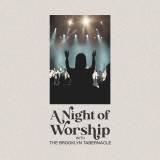The Story Behind Days of Elijah
I have had quite a few
people asking me for an explanation of the roots and meaning of the words and
themes contained in “Days of Elijah” since I wrote the song way back in 1994.
The song is generally and
principally a song of ‘hope’. The themes it explores are to do with the fact
that, although raised a Methodist, I attended a lot of Brethren or Gospel Hall
meetings as a small boy and somehow the theology of Old Testament stories and
characters being, either as themselves or by their actions, ‘types’ or
‘examples’ of Christ and the Church got stuck in my head. That is, even though
they were historical factual people, living in the old covenant days, their
actions and characters can be used to teach and represent the character of God
under the new covenant and they continually and repeatedly point to Christ.
People call this “Typology” or “Typical” analysis of the scriptures.
Firstly the song came
from watching a television “Review of the Year” at the end of 1994. This was
the year of the Rwandan civil war tragedy which claimed 1 million people’s
lives, and also when the first ceasefires in N.I. were declared. On this TV
review were a lot of daft stories, happy stories, serious stories, and then
absolutely devastating stories like the Rwandan situation. As I watched the
review unfold I found myself despairing about the state of the world and, in
prayer, began asking God if He was really in control and what sort of days were
we living in.
I felt in my spirit that
He replied to my prayer by saying that indeed He was very much in control and
that the days we were living in were special times when He would require
Christians to be filled with integrity and to stand up for Him just like Elijah
did, particularly with the prophets of Baal. “These are ‘Elijah’ days”.
Elijah’s story is in the book of Kings and you can read how he felt isolated
and alone in the culture in which he lived. But God told him to stand up and
speak for Him.
We also needed to be a
holy and just people and hence the reference to the “days of your servant
Moses”, meaning that righteousness and right living was important in all our
attitudes and works. Now, we are under grace and not under law, but the
righteousness that comes by faith can be no less than the moral law that Moses
brought direct from God. It has not been superseded. In fact Jesus told us that
our “righteousness must exceed that of the Pharisees”, who were the most ardent
followers of Gods laws as presented by Moses. Jesus was after righteous,
servant hearts, of course, that desired to live holy lives for Him.
“Days of great trial, of
famine, darkness and sword” is a reflection of the apparent times in which we
live when still thousands of people die every day from starvation, malnutrition
and war. In the midst of it all we are called to make a declaration of what and
who we believe in.
The second verse refers
to the restoration of unity of the body, what Jesus prayed for – “that they may
be one even as I and the Father are one…” by reference to Ezekiel’s prophetic
vision of the valley of the dry bones becoming flesh and being knit together.
There are lots of interpretations of this picture, but one of a united church
rising up in unity and purpose, is a powerful call on us in these days.
The restoration of praise
and worship to the Church is represented by “the days of your servant David”.
Some folks use the term “Restoration Theology” to describe this restoring of
attributes to the church. But in the song it’s mainly a picture of worship
Of course David didn’t
get to build the structural temple (that’s why the word in the song line is
“rebuild”), that was left to Solomon his son, but David was used by God to introduce
a revised form of worship, praise and thanksgiving into, firstly, his little
tent which he pitched around the Ark of the covenant (the presence of God) and
then the temple that Solomon his son built.
This worship, unlike the
Mosaic Tabernacle, involved many people being able to come into Gods presence
and worship him openly. (In Moses time only one man, the high priest, could
enter the Holy of Holies, once a year. David’s tent was a picture of how Christ
would enable us to come right into Gods presence, through his sacrifice, and
worship openly there).
If you search carefully
through the Book of Amos (chapter 9) you will find reference to this
“Restoration of David’s Tabernacle”. In Acts this prophecy was used to explain,
at the council of Jerusalem, why the “Gentiles” should be allowed to become
Christians and worship their saviour without all the legal requirements of the
Jewish law. It is also accepted among restoration theologians that this refers
to restored Praise and Worship. The physical temple was “Solomon’s”, David’s
“temple” was a little tent but you and I are the Temple of the Holy Spirit. It
sounds complex, doesn’t it, but if you just understand that the line in the
song refers to Praise and Worship before the presence of God just like David
enjoyed, then that’s all there needs to be to it!
Finally the “days of the
Harvest” point towards what is the purpose of the Christian to go into all the
world and make disciples of all nations. By the way “The fields are as white in
the world” is from the old King
James version and means, their ripe for harvest.
These are the themes of
the verses – Declaration, Righteousness, Unity and Worship. I chose to express
these thoughts by reference to the characters that represented these virtues in
the Old Testament. It is in essence a song of hope for the Church and the world
in times of great trial.
The chorus is the
ultimate declaration of hope – Christ’s return. It is paraphrased from the
books of Revelation and Daniel and the vision that was seen of the coming King
and refers to the return of Christ and the year of Jubilee. Theologians and
Bible commentators believe that Israel never properly celebrated this
particular 50th year jubilee, and that it will only be properly celebrated when
Christ returns. That might be true but I reckon that a Jubilee is an apt
description of what happens when Christ comes into anyone’s life at any time;
debts are cancelled and a captive is set free.
CONTINUED ON PAGE 2>>>
CONTINUED ON PAGE 2>>>
The Story Behind Days of Elijah
 Reviewed by Admin
on
5:27:00 PM
Rating:
Reviewed by Admin
on
5:27:00 PM
Rating:
 Reviewed by Admin
on
5:27:00 PM
Rating:
Reviewed by Admin
on
5:27:00 PM
Rating:

















Post a Comment